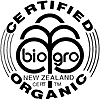How green is the Oslo Conference on an African Green Revolution?
Bonn, Germany, August 31st 2006
Today, corporations and organizations, both public and private, are meeting in Oslo, Norway to foment action towards the development of an African Green Revolution. The Oslo Conference, organized in response to a call for action made by United Nations Secretary General Kofi Annan in 2004, is pushing for the adoption of unsustainable agricultural practices in an effort to rapidly increase farm production, which threatens traditional farming practices throughout Africa.
The deplorable state of Africa’s agriculture does indeed deserve international attention. But emphasizing Green Revolution practices will only amount to short term gains that lead to long term problems on the continent.
Over-exploitation of land and the introduction of chemical fertilizers and pesticides have stimulated production systems that are increasingly far removed from local resources and heavily dependent on non-renewable resources. As natural cycles are broken, this leads to?an increase in the severity of pest and disease outbreaks and greater difficulty in managing soil nutrients. Green Revolution practices in Africa will degrade soil, generate pest and weed problems and will make it increasingly difficult and costly to sustain yields. To solve these problems, even more pesticides and more chemical fertilizers have to be used, establishing a vicious cycle.
And although low soil fertility is one cause of Africa’s food insecurity, it is certainly not the only cause. Social and economic determinants are at least as important, and will not be changed by using more fertilizer! The preoccupation with productivity per hectare ignores the increasing evidence that it is not supply factors, such as productivity per hectare, but demand factors, such as market opportunities, that determine agricultural development outcomes in Africa.
Organic Agriculture puts farmers at the center of the farming strategy, restoring the decision-making role to rural communities, as opposed to the?reliance upon external inputs such as fertilizers and pesticides that?characterizes industrial agriculture. Organic Agriculture is knowledge intensive and builds on traditional knowledge, rather than the infusion of external capital and resources.
Gerald A. Herrmann, IFOAM president emphasizes “In our understanding, a Green Revolution should be really green and address all aspects of sustainability. Mineral fertilizers are made with oil, a non-renewable and cost-increasing source. More than half of the world’s food is produced by women, and in rural areas in developing countries as much as 80 percent. Yet women have little access to land, credit, training and education. These aspects of sustainability are not addressed by a green revolution based on chemical fertilizers!”
IFOAM, together with its members in Norway, address these concerns by presenting Organic Agriculture as a ‘green’ alternative to input-based agriculture, so the participants of the conference may
broaden their perspective.
IFOAM is the international umbrella organization of Organic Agriculture movements worldwide.
IFOAM’s mission is leading uniting and assisting the organic movement in its full diversity.
Our goal is the worldwide adoption of ecologically, socially and economically sound systems that are based on the Principles of Organic Agriculture.
IFOAM Press Release, Responsible: Angela B. Caudle, Contact: Neil Sorensen
Head Office Contact
Charles-de-Gaulle-Str. 5
53113 Bonn, Germany
Tel: +49-228-92650-10
Fax: +49-228-92650-99
Email: headoffice@ifoam.org
http://www.ifoam.org
















